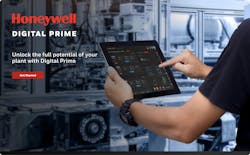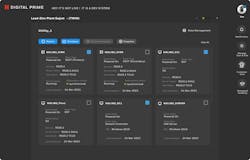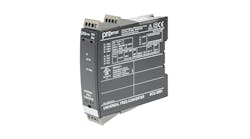The benefits of digital twins technology for the process industries
Process control industries are high stakes environments with no room for error. With lab systems, industrial companies can replicate their operations and provide a safe environment for testing changes without risking a disruption to the live operation. However, even where a lab system is in place, over time it will fail to reflect the modifications, updates, upgrades and expansions that occur, diminishing its utility.
To avoid process disruptions or potential safety incidents from occurring, system changes require testing before implementation, and training operators on the real asset can be tricky; one minor mistake can put other workers in harm or cause downtime, costing a company hundreds of dollars.
As the industrial sector welcomes digitization, digital twins has become a unique resource that is helping drive the transformation.
Why do you think digital twin technologies have become so prevalent within the industrial sector? Which industries are we seeing this virtual engineering platform used more in today?
Digital twins have become an essential tool as it provides users with an exact model of their enterprise within a virtual environment. This capability offers users greater visibility on operational processes and gives better insights into areas that are either under- or over-performing. The solution can be used across different industrial sectors, including at chemical and oil and gas plants; for example, in an oil refinery, digital twin technology can be used to maintain pumps, compressors, heat exchangers and other pieces of equipment.
How can digital twin technologies advance training programs as well as promote workforce safety?
Across the board, we are seeing a decreased pool of skilled workforce as many older personnel retired following the COVID-19 pandemic. As newer generations enter the field, companies are looking for effective training programs to upskill their workers. Digital twins of processes, plants, and equipment allow for training and developing operators on a virtual plant without needing the actual equipment or impacting operations.
With Honeywell’s Digital Prime, we’ve taken it a step further. By working with an exact virtual replica of a plant facility, workers can test out any engineering scenario or configuration compliance check before implementation using cloud-based software. We make sure that when they sit in front of that simulator, it’s like they’re sitting in front of the equipment in the real plant. This flexibility offers users the chance to work through any real-life circumstance with no risk of unanticipated downtime for the enterprise while they work to identify and prevent potential malfunctions that could cause damage or injury.
How can digital twin solutions increase operational efficiencies and overall performance?
Digital twins helps users improve operations in numerous way. First, digital twins can utilize data collected on certain pumps to predict when they would start degrading in performance. This information also allows operators and maintenance teams to know when to proactively perform maintenance or make updates to address any future issues. In fact, research has found that this data can help businesses avoid plant shutdown and determine opportunities as to when to reduce downtime, prolong maintenance intervals, and capture untapped throughput potential.
Secondly, digital twins can categorize this data to create parameters for their operations, allowing users to review actual process performance against the expected parameters. The difference between the actual and the expected values indicates where certain areas may be performing incorrectly, enabling operators to make changes and achieve ideal production. This will lead to improved:
- Efficiency: Improved data quality and security; continuous monitoring and optimizing of plant assets.
- Cost reductions: Faster operational readiness; direct and easy access to information.
- Revenue growth: Faster and collaborative decision making.
Do you have any suggestions/advice for users who would like to implement a digital twin solution into their operations?
Scaling an industrial digital transformation initiative is always challenging because of the inherent complexity of change management and adoption. In our experience over the last two decades of seeing these engagements, we are convinced that scalability of a digital transformation initiative is not technical – it is about change management and executive engagement. Success depends on setting the key success criteria, setting adoption milestones, driving a change program and ensuring regular measurement and reporting of progress.
Where do you see this technology improving in the future?
Speed and security of data access, especially in a plant environment, is extremely critical. Due to intrinsic safety and security needs for critical infrastructure, a lot of the communication tools that are used in a commercial environment are not applicable for industrial context. Therefore, care should be taken to ensure the right and safe technologies are used for digital transformation initiatives.
Tiffany Barnes is the Senior Offering Manager for LSS Software Solutions at Honeywell Process Solutions. Tiffany joined Honeywell 14 years ago as a project engineer for the Operator Effectiveness Center of Excellence. After spending several years as a procedural operations subject matter expert, Tiffany helped drive customer focus and Honeywell technology as a technical solution consultant. In her current role, Tiffany is responsible for delivering meaningful software solutions, including Honeywell Digital Prime, Trace, and new to market offerings. She has a Bachelor’s Degree in Mechanical Engineering, from California State University Long Beach.



